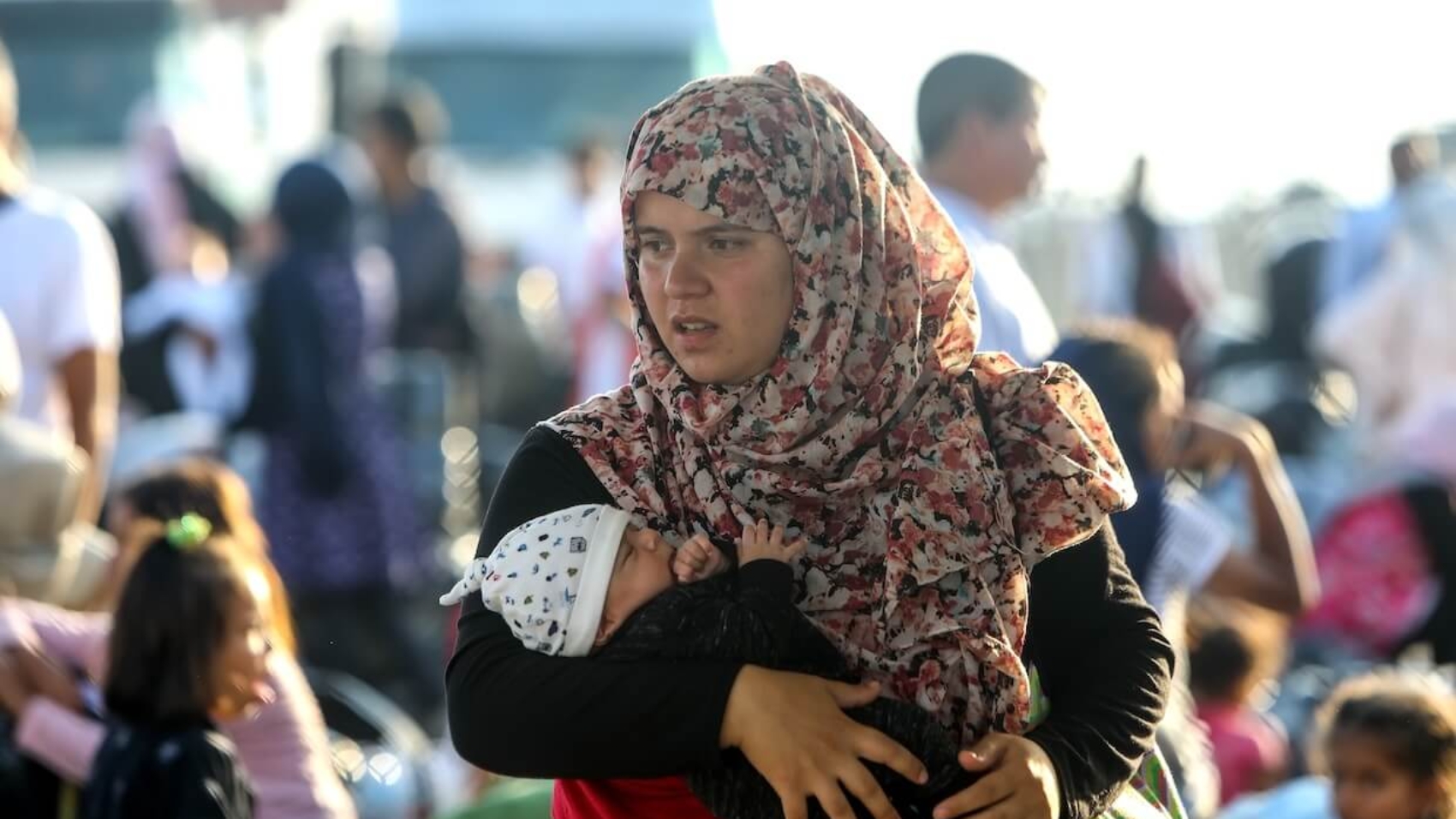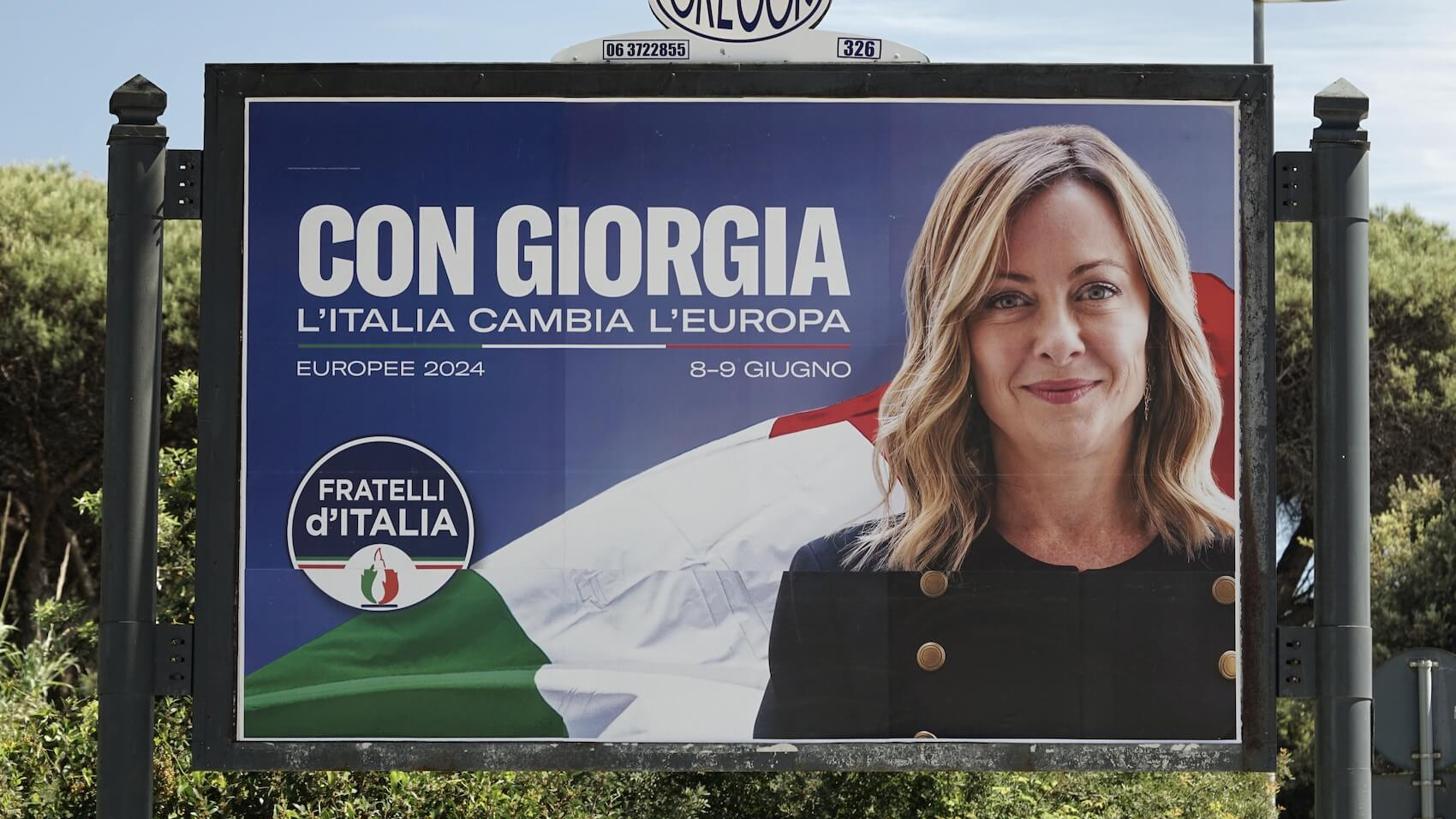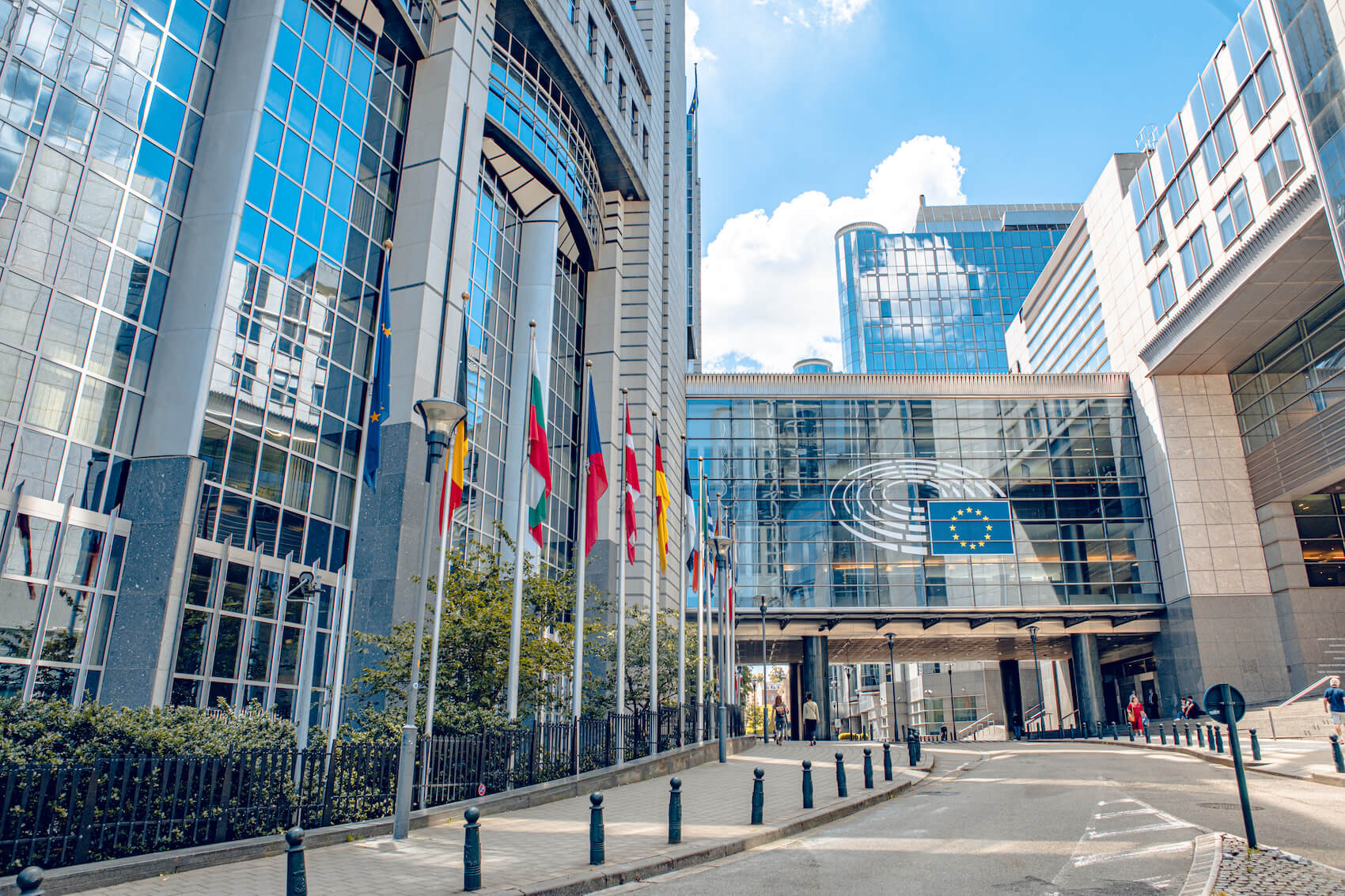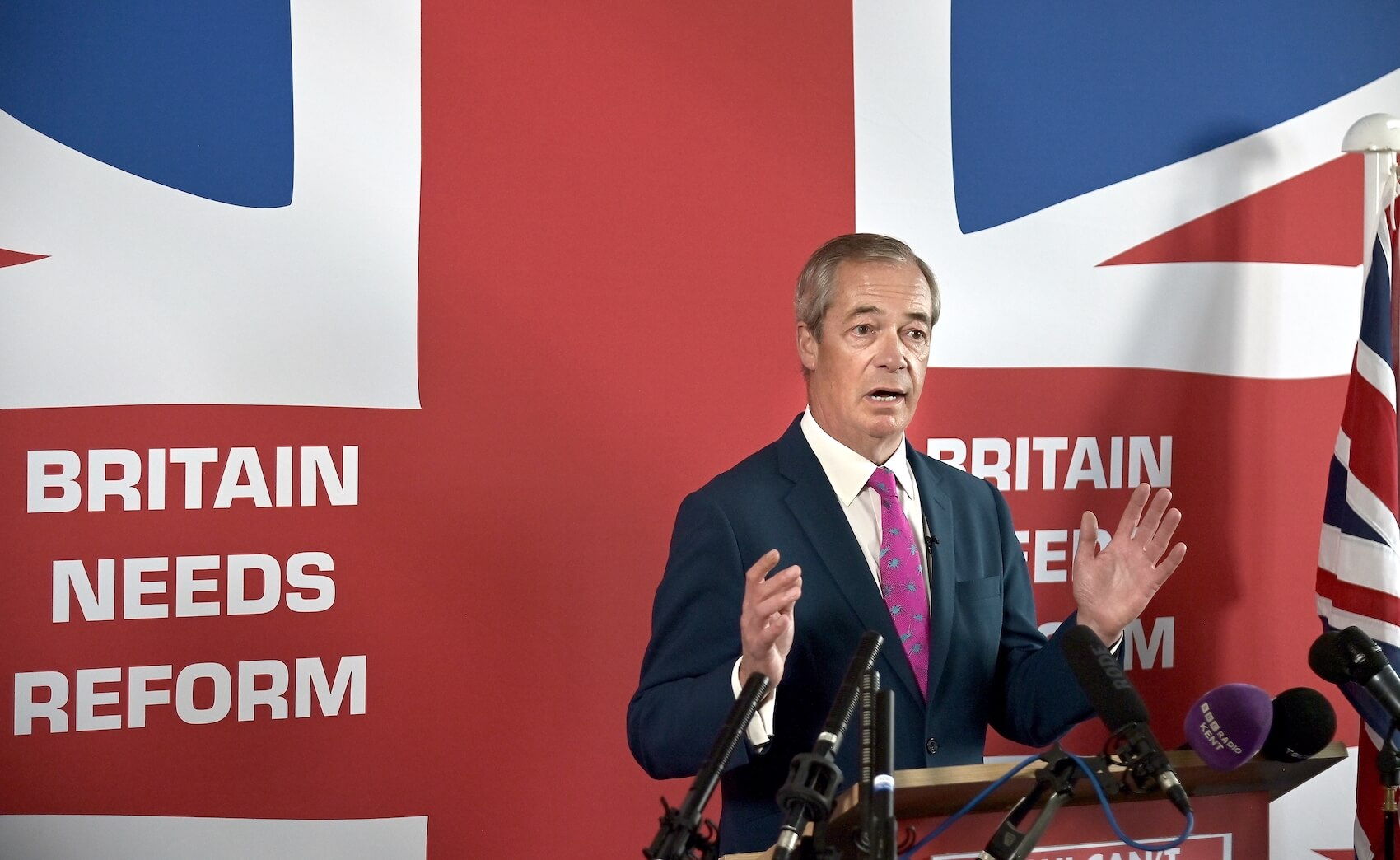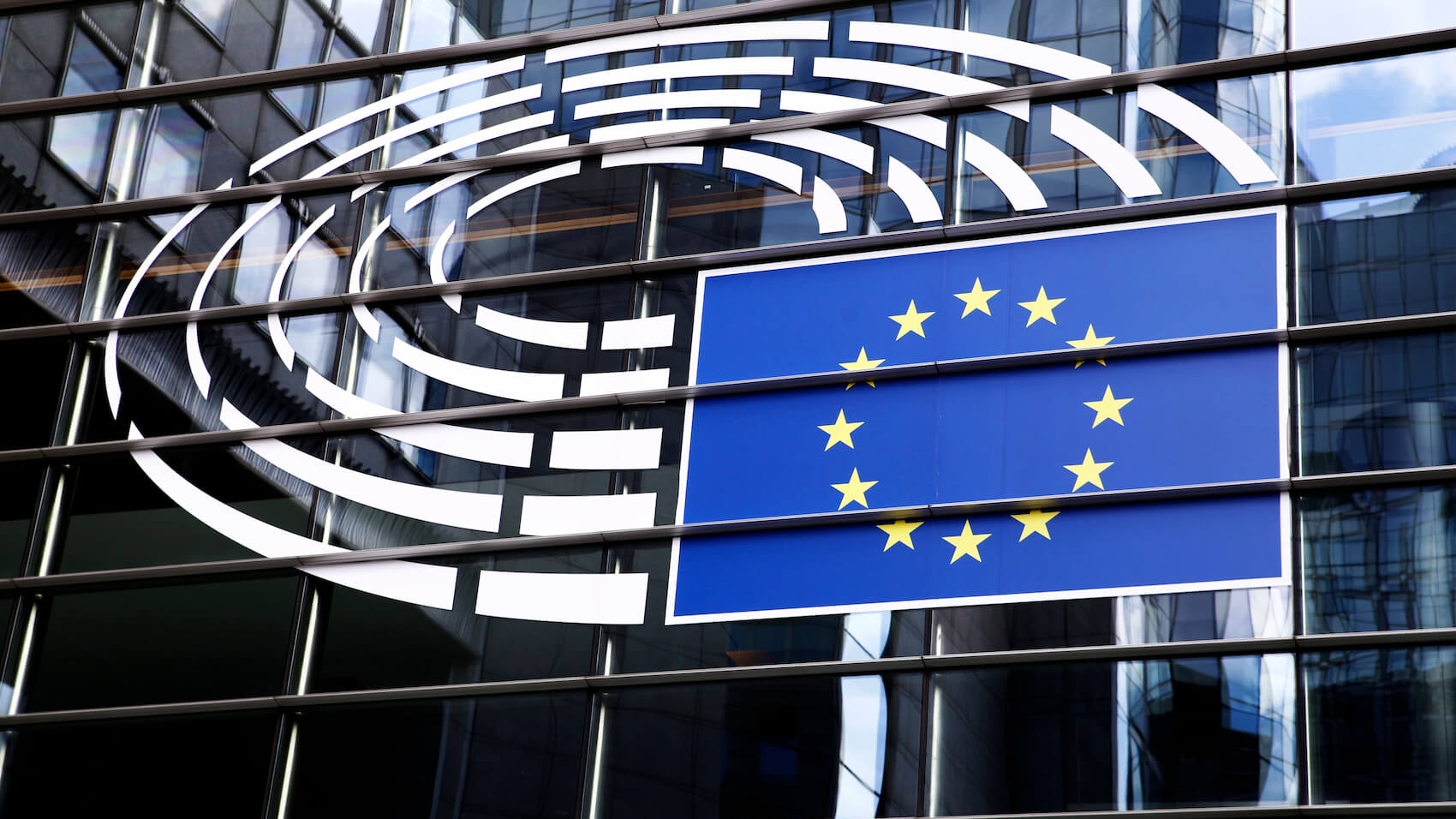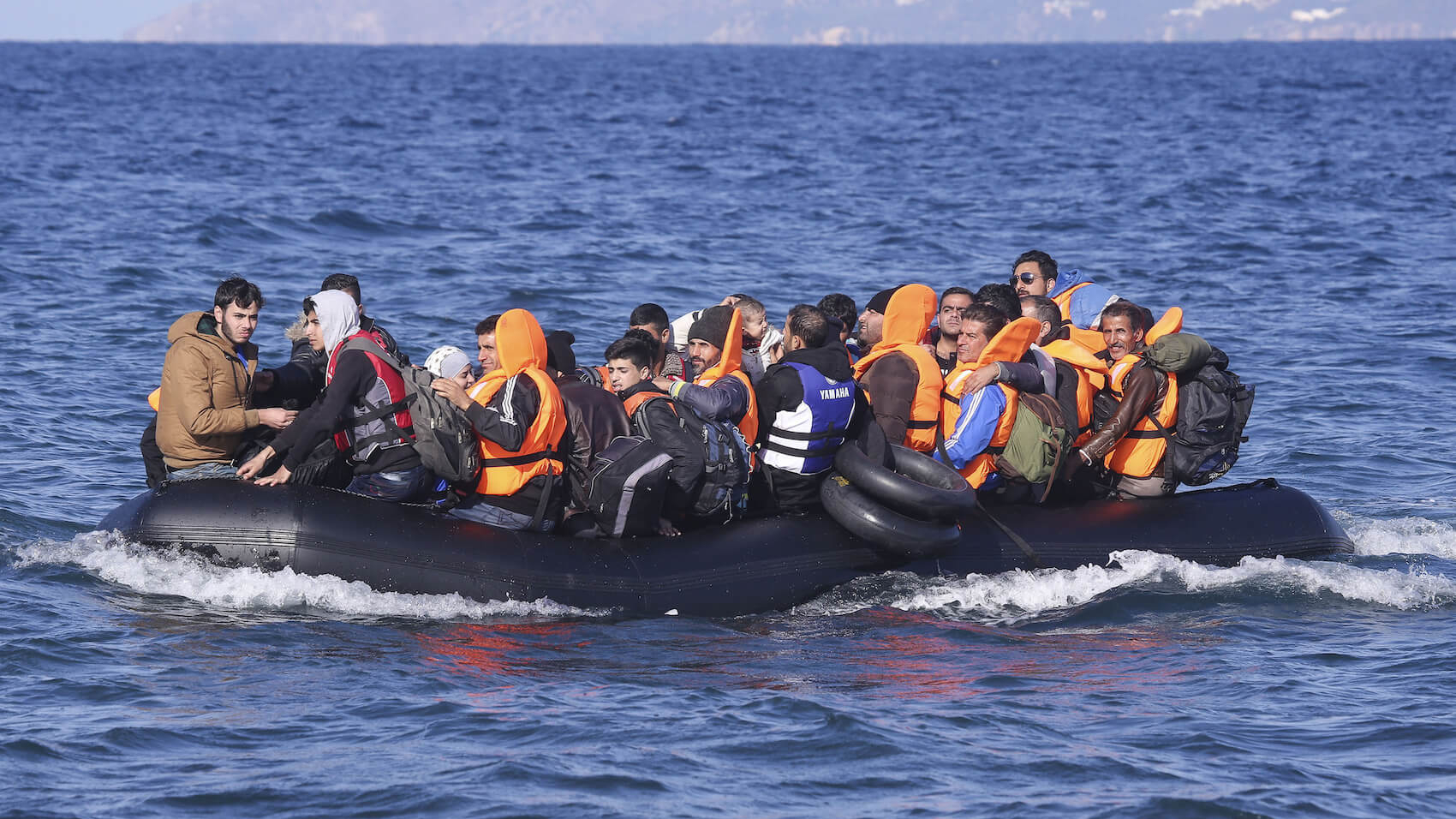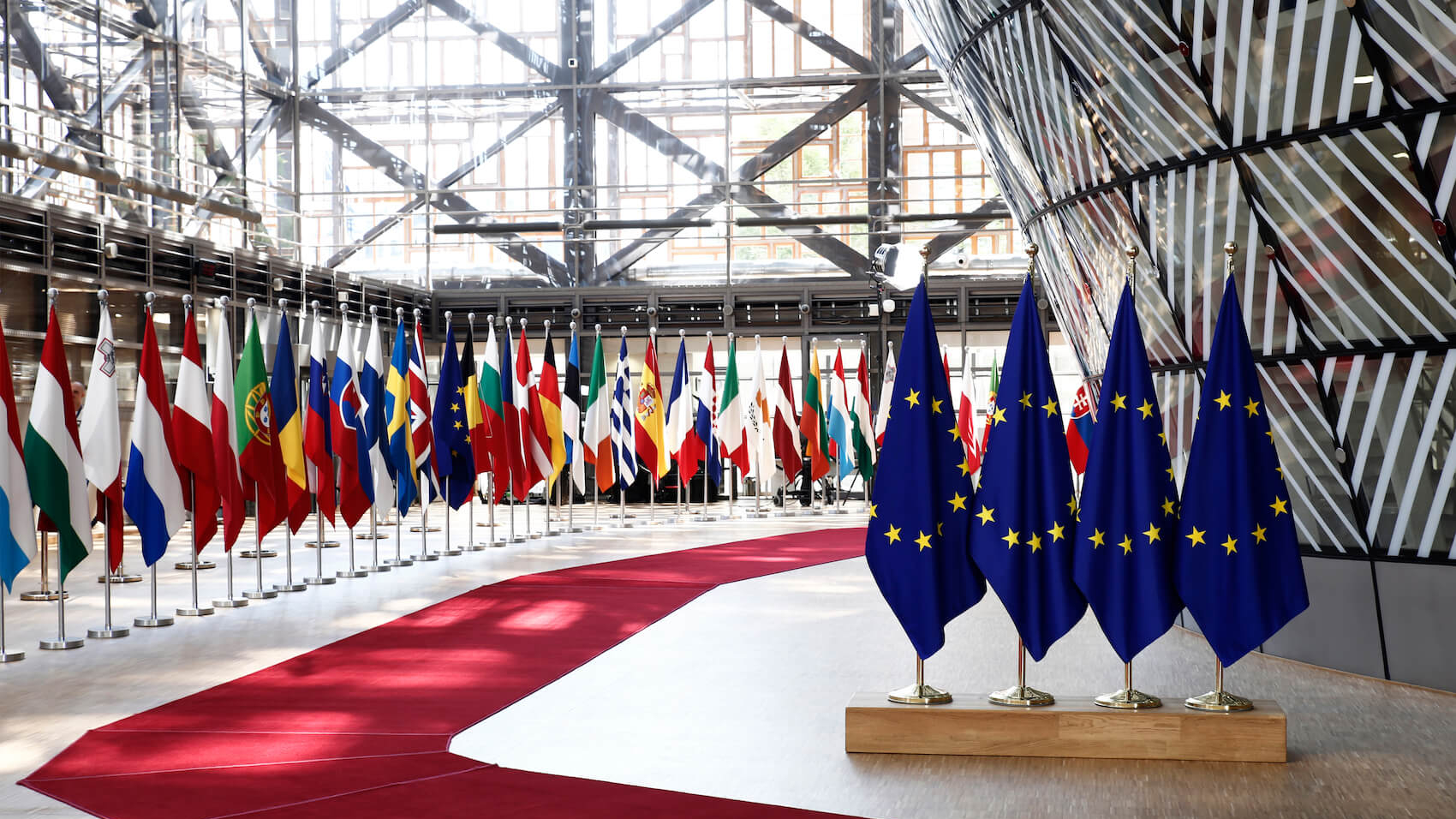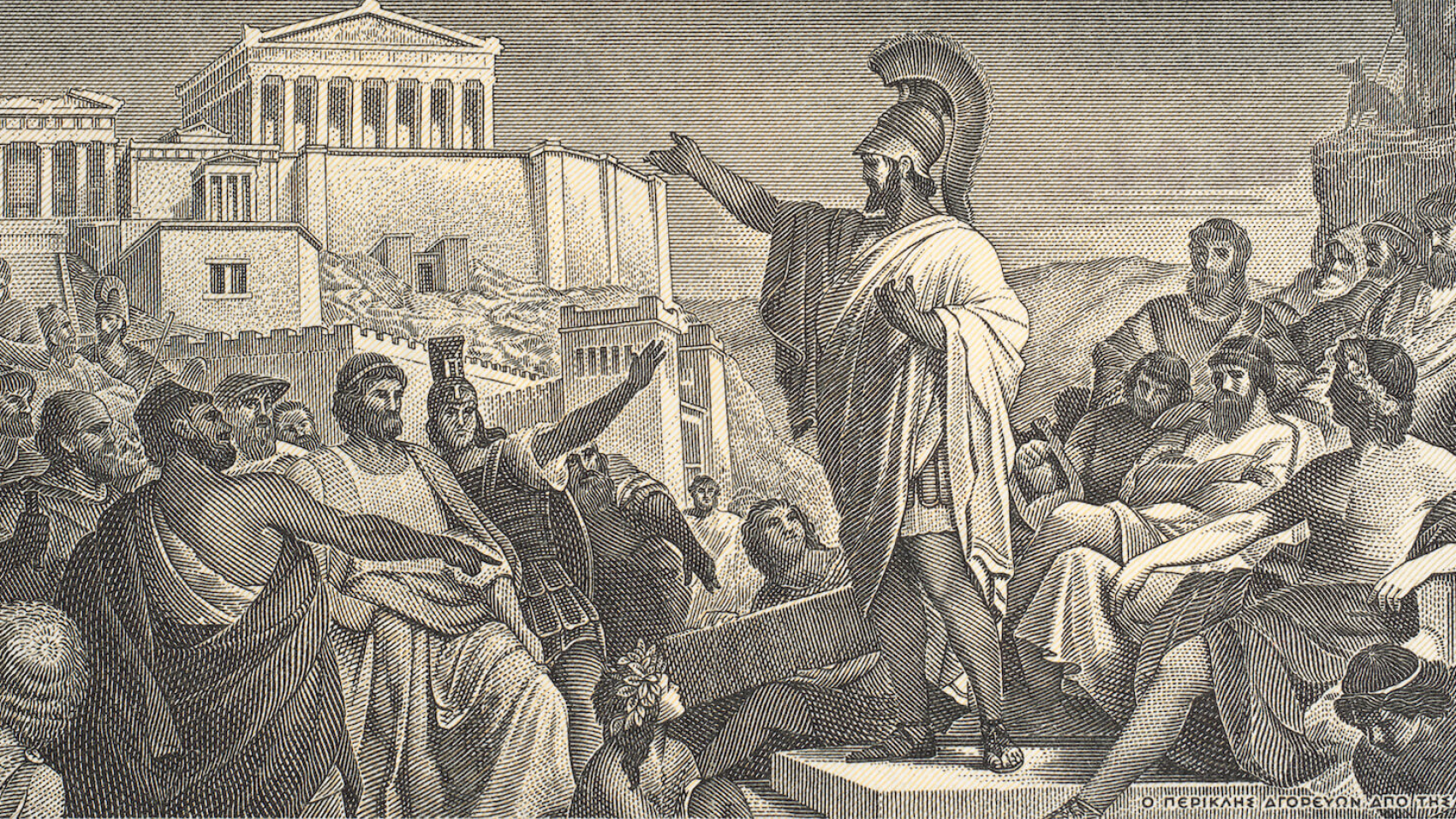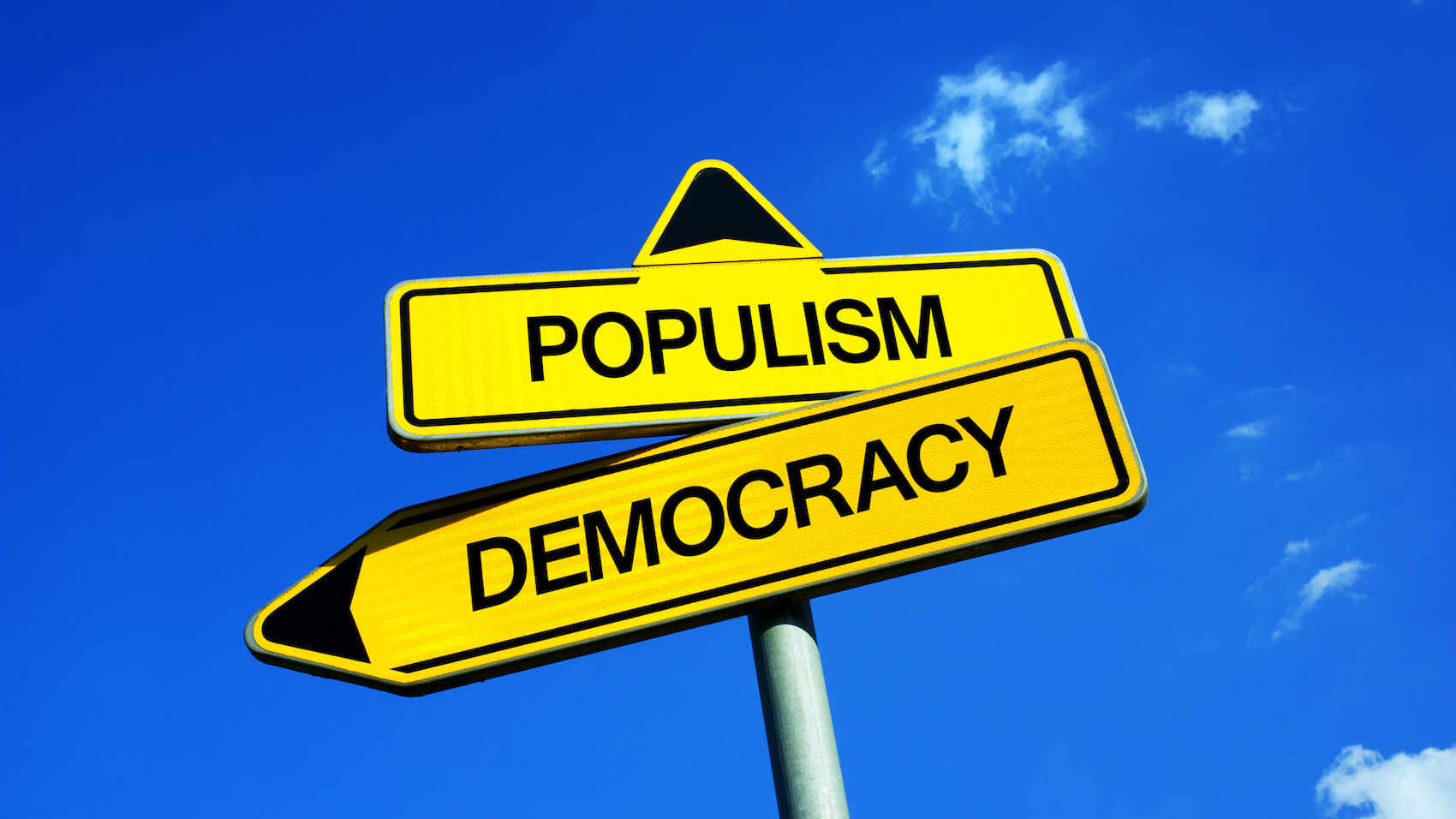The 2024 EU parliament election polls show the populist right and far-right as the main winners. The tendency of voters to choose populist parties could push the populist agenda of the left to compete with the far-right. This could be an attempt to transform xenophobic tendencies by the right into inclusionary populism, which describes the conservative elite as the other and creates further social conflicts. Therefore, we need to ask ourselves how populism (both left and right) impacts EU legislation now.
By Katharina Diebold
The mostly expected European Parliamentary elections results and the next presidency of the Council of the EU, Hungary, will likely be contentious issues for the European Community (Henley, 2024). The 2024 EU elections and the Hungarian presidency polls have indicated a rise of right-wing and anti-Europe populist parties. These tendencies fuel the transformation of the EU towards the right and conservativism (Wax & Goryashko, 2024).
The 2024 EU parliament elections has showed the populist right and far right as the main winners. The fact that voters tend to choose populist parties could increase the populist agenda of the left to compete with the far right as an attempt to transform xenophobic tendencies by the right into inclusionary populism, which describes the conservative elite as the “other” and creates further social conflicts (Henley, 2024; Suiter, 2016; Stavrakakis & Katsambekis, 2014). Therefore, we must ask ourselves how populism (both left and right) impacts EU legislation and what predictions can be made for the post-2024 elections.
In this essay, it will be argued that recently adopted EU legislation—the Green New Deal (including the Nature Restoration Regulation and Deforestation Regulation) and the New Pact on Migration and Asylum—is influenced by populist rhetoric and identity politics, which ultimately harms the EU. In connection with this, populist candidates driven by identity politics will be shown to threaten the future of the EU.
Theoretical Framework
Populism is a thin ideology comprising three key elements: the people, the general will and the elite, (Zulianello & Larsen, 2021; Mudde, 2004). Additionally, it incorporates the dimension of the “dangerous others,” often represented by migrants, positioned in contrast to the people (Rooduijn & Akkerman, 2015).
Previous research suggests that populism, taken as a framework for populist communication and rhetoric (Aalberg et al., 2017), is also used by mainstream parties to improve their relationship with voters on social media (Lin et al., 2023). Key themes identified are people-centrism, anti-elitism, restoring popular sovereignty and exclusion (Aalberg et al., 2017; Engesser et al., 2017). Additionally, specific negative and emotional populist communication styles on social media correlate with a positive increase in relationships between mainstream parties and their voters (Lin et al., 2023, p. 608). This analysis will use populism as a guide for identifying potential populist rhetoric.
Even though populism in Western Europe is often associated with the right, the left has increasingly adopted populist strategies, specifically in the aftermath of the 2008 financial crisis, which was covered in the media as “the rise of leftist populism” (Gross, 2022). The negligence of academic research about the populist left could be responsible for the recent findings. This seems even more relevant when we consider the electoral performance of populist left parties compared to populist right parties for the elections of the European Parliament in 2019, such as Podemos in Spain, Syriza in Greece, and Sinn Féin in Ireland (Bernhard & Kriesi, 2021; Statista, 2024). For example, the Greek Syriza Party (founded in 2004) and the Irish Sinn Féin Party (founded in 1905) were only recognized as left-wing populist parties in 2014 (O’Malley & Fitzgibbon, 2014;Stavrakakis & Katsambekis, 2014). Nevertheless, Syriza’s populism has been questionable throughout its government term and recent opposition in 2021 (Markou, 2021). Recently, the focus on populism in Western countries shifted again towards right-wing populist parties (Bartel, 2023; Morison, 2023).
Identity is a set of labels describing persons distinguished by attributes (Noury & Roland, 2020). Identity politics is the belief that identity is a fundamental focus of political work, which can be connected to lifestyle and culture (Bernstein, 2005). Politicizing immigrants as the “other” is an example of that. In Europe, identity politics is referred to as the protection of the “silent majority” from harmful consequences of immigration, which is used by right-wing populists (Noury & Roland, 2020).
The effect of rising populism within the EU on the right- and left-wing can be recognized by looking at EU-party campaigns or populist candidates for the recent EP elections. Similar to the right-wing, the left-wing populists also employ identity politics. Leftist-populism can be seen promoting marginalized identities, such as racial and ethnic identities and seeking to transform the shame previously associated with these identities into a point of pride (Salmela & Von Scheve, 2018). Accordingly, these protests generate “others,” including people who abide by a different value system and also the privileged “elite” who overlook intersectional identities as a threat. While promoting human rights, advocacy for intersectional identities can also fall into the trap of populism among leftist groups and other advocates (Stavrakakis & Katsambekis, 2014). However, intersectionality may not be the only advocacy that can turn into a populist movement in the name of advocacy. Climate and human rights activists can also be politicized and positioned as polarized identities (Mackay et al., 2021).
Inherent Populism in EU Legislation
Environmental politics presents a point of contention for both the right- and left-wing parties. Both sides instrumentalize newly adopted legislation to increase the public appeal of voters (European Commission, 2023). This can be exemplified in the recent regulations. The newest adopted legislation, the European Green New Deal, including its Deforestation Regulation and its Regulation on Nature Restoration, and the New Pact on Migration and Asylum, have elements of this otherization and marginalization of identities.
A closer examination of de jure analysis and how these laws, as portrayed in political language, unearths the need for more interest in realizing the general goals of protecting nature. It looks like nature is wiped of its identity within the hands of humans who instrumentalize nature as a theme broadly advocated by large swaths of society. Therefore, identity politics exploiting nature must be identified and widely discussed to protect nature and the shared values of humanity, not to sacrifice basic human dignity for politics.
The European Green New Deal
The European Green New Deal, including the Deforestation Regulation, entered into force on June 29, 2023, and the provisional agreement for the Regulation on Nature Restoration was accepted on November 9, 2023. These legislations gaining the left’s support have also been instrumentalized to boost the attention and sympathy of left-wing parties.
The populist rhetoric surrounding the Nature Restoration Regulation can be approached as a case exemplifying populist politics appealing to the left (The EU #NatureRestoration Law, 2023). The left uses advocacy of this legislation, especially the Greens/EFA, in the elections for greenwashing purposes and voter accumulation. However, this law focused more on economic benefits than actual environmental protection and lost its progressiveness throughout the legislative procedure. Therefore, it is based on the misconception that this regulation substantially improves nature restoration and indigenous rights protection (Pinto, 2023). Moreover, the conservative European People’s Party (EPP) claims this law increases the financial burden for the forestry, fishery, and farming sectors (Weise & Guillot, 2023). However, these realities are dismissed in the political language of environmental advocacy.
We can assess that the Greens-European Free Alliance (Greens/EFA) campaign for 2024 EP elections utilised populist rhetoric by defining the people as the “citizens, farmers, fishers and business in the EU;” The elite as “the conservatives, far right and some liberals” who “try to tear down a new EU law to restore nature;” and The general will of the people could be characterized as focussing on tackling biodiversity and the climate crisis (Greens/EFA, 2023b). The campaign by the Greens/EFA for this regulation played into identity politics as the party used a language claiming to advocate for the protection of marginalized Indigenous and local communities. While this claim remains to be only a discourse, regardless, it boosts the popularity of the Greens. Examined closely, the ostensibly evergreen legislation advocating biodiversity protection promotes local cartels and exploitative companies that benefit and take advantage of the EU partnerships (Euronews, 2023). The hypocrisy and the tact in the use of language can be seen in the advocacy language of the party, which left these cartels out intentionally.
Deforestation Regulation
The Greens/EFA campaign for the Deforestation Regulation shows characteristics of populist rhetoric (European Commission, 2023). The Greens/EFA emphasize the importance of “the people,” for example, by the quote “The rights of people and nature must always come before profit,” which could be interpreted as people-centrism (Greens/EFA, 2023c).
Another example of anti-elitism could be identified by emphasizing the misinformation and fake news campaign against the nature restoration law in a video by the Greens/EFA (Greens/EFA, 2023d). The misinformation campaign was conducted before the 2024 EP elections in multiple EU countries, including Germany, Belgium, the Netherlands and Poland by political parties, Member of the European Parliament (MEP)-candidates and farming groups such as the Dutch National Farmers Party (BoerBurgerBeweging-BBB), the Dutch far-right fringe party (Forum voor Democratie) and the polish Earth farmer’s support foundation (Greens/EFA, 2023d; Carlile, 2023).
The MEP negotiator for the nature restoration law, Jutta Paulus, mentions the agriculture lobby as a factor that made the legislation less progressive and ambitious and prevented meaningful, sustainable EU laws, such as laws regarding agricultural goods (Paulus, 2023a). Paulus mentions in another video about the nature restoration law that, specifically, the conservatives and the far-right are responsible for preventing and decreasing the effectiveness of the new legislation (Paulus, 2023b). Those examples do not mention misinformation campaigns by politicians, farming groups, the agriculture lobby, or the far-right elite. However, it can be argued that this language and framing emphasizing the element of conspiring groups could be interpreted as populist rhetoric.
This connects to other findings that suggest that left parties connect political anti-elitism to economic anti-elitism and the argument that hardworking, ordinary citizens are betrayed by the political-economic power elite (Rooduijn & Akkerman, 2015). Additionally, the new regulation on deforestation will only prevent EU customers from buying products derived from deforestation. However, deforestation and sales of deforested products to other customers worldwide can continue (Greenpeace, 2021). The regulation also lost its progressive and ambitious character throughout the legislation procedure (Fairtrade.net, 2022).
New Pact on Migration and Asylum
The left and the right used identity politics as a tool to increase sympathy for the EP elections through the usage of marginalized identities such as “migrants” and “asylum seekers” (Greens/EFA, n.d.). The recent pact on migration can be shown as an example of populist identity politics transcending the right and left binary, uniting the voters around the so-called threat posed by the influx of migrants and asylum seekers.
The New Pact on Migration and Asylum reinforces the topic of illegal migration and thus supported the right-wing campaigning for the European Elections 2024. The political language on this regulation is laden with populist elements. Firstly, the right-wing European Peoples Party defines “the people” as “European citizens” or “our citizens” who deserve security, safety and protection in times of migration (EPP Group, 2023; EPP, 2016). Secondly, von der Leyen specifically points out in her New Pact on Migration statement that smugglers and traffickers control illegal migration (Press Statement von der Leyen, 2023). This can be understood as a symptom of a “corrupt elite” in government that allows smugglers and traffickers to run unhampered (Rusev, 2013). Thirdly, a comment by the leader of the EPP, Manfred Weber, could give insight into how his party wants to respond to the “general will” of the people (including the voters for the EP elections). He said the EPP would be “crystal clear about its desire to reduce immigration in the campaign for European elections” (O’Carroll, 2024). The populist language forebears the identity politics around migration, appealing to both the right and the left. The New Pact and statements by the EU Commission play into identity politics through the terminology of the “bad migrants,” positioning them as “dangerous others.” Unfortunately, the New Pact has been under debate in the EU since 2020 and was used as a promotional tool for the EP elections to attract voters on both the left and right (Georgian, 2024).
The New Pact has also been used by the Greens/EFA populist campaign for the European Elections 2024, reinforced the idea of a unified peace union. In this instance, we can deduce that “the people” could be defined as “us and the migrants and asylum seekers, that we do not leave behind;” “the general will” could be characterized as ” upholding human rights and international law” (Greens/EFA, 2023a).
The Greens/EFA shadow rapporteur for the new asylum and migration management regulation (which is part of the New Pact on Migration and Asylum), Damien Carême, emphasized in a post on his social media that EU interior ministers and the European Commission adopted vocabulary regarding migration that pleases the far right only to gain popularity and votes for the EU elections (Carême, 2024). In his view, this rhetoric compromises the truth and neglects migrants (Carême, 2024). Another post criticizes the former director of the European Border and Coast Guard agency (FRONTEX), Fabrice Leggeri, for spreading fake news and lies about the new pact on migration (Carême, 2024b). Those examples do not specifically mention politicians or the far-right as elites. However, it can be argued that this language and framing emphasize an element of conspiring groups spreading fake news to increase distrust. This could be interpreted as constituting populist rhetoric, which characterizes an “elite.”
Additionally, another shadow rapporteur of the Greens/EFA responsible for the crisis and force majeure regulation (also part of the New Pact on Migration and Asylum), Damian Boeselager, emphasizes yet more rhetoric element connected with populism – the element of populist sovereignty. In one of his posts, he claims that the EU asylum system can only be tackled on the EU level if the EU regains its sovereignty (Boeselager, 2024). Moreover, he claims that if “we” want to win sovereignty back, we must do this at the EU level (Boeselager, 2024). Concerning the New Pact on migration, specifically migration agreements with Tunis, Libya and Egypt are increasingly scrutinized in the media and by the Greens/EFA (Greens/EFA, 2023e; Carême, 2024c).
Another interesting element is that research suggests that an “emotional” populist communication style positively increases the relationship between mainstream parties and their voters. By looking at postings by the Greens/EFA and their MEPs, it can be argued that dramatic music, pictures of migrants in boats at sea, in refugee and asylum camps and centers used by Carême, as well as the main Greens/EFA page could be identified as emotional communication style. Additionally, the new Migration Pact favors the reinforcement of border controls, returns and re-admissions over legal migration opportunities. Those stay symbolic, vague, and distant policy goals. Recent reviews of policy documents show that the EU prioritizes regulating irregular migration, and despite its rhetoric for “strengthening legal migration,” concrete action is missing (Sunderland, 2023).
Identity Politics and Candidates
Introducing inexperienced candidates tailored to resonate with particular social groups was a common strategy employed by both left and right populist parties to garner support. This practice is another instance of identity politics shaping the European political landscape. Following in the footsteps of their forerunners, like Marie Le Pen or Hugo Chávez from the past, these charismatic political figures engage in populist rhetoric, addressing a diverse range of social and legal issues in their political discourse—from environmental protection to EU identity and migration (Serra, 2017).
Examples for the European Parliament elections 2024 included Nicola Gehringer, promoted by the German right-wing party CSU (Christian Social Union), on place nine. Gehringer is a successful executive assistant of a big corporation, “Neoloan AG,” with the potential to attract successful business owners. Another figure is the farmer and agriculture expert Stefan Köhler, who run for the CSU on place six to attract farmers (Zeit Online, 2023). Farmers have become increasingly crucial in the European discourse, with the recent increase in farmer protests in Germany, France, and the Netherlands (Trompiz & Levaux, 2024).
Legal and security experts also run with public appeal to the voters across political divides. Carola Rackete, the German candidate for “Die Linke,” a leftist Party, is a human rights activist fighting for better refugee rights and asylum laws, run for the second position (MDR.DE., 2023). The human rights activist as a candidate were expected to increase the number of radical voters from the left. The German Green Party was heading with a policeman on place eighteen in the EP elections, tried to include more right-leaning social groups in the Green voter repertoire since police officers tended to vote for conservative and right-wing parties (Papanicolaou & Papageorgiou, 2016).
In Austria, the first candidate for the Greens party was Lena Schilling, a climate activist of “Fridays-for-future.” Schilling had a high chance of attracting young voters as she was the only young female top candidate among all running top party candidates in Austria (Völker, 2024). The second place was Thomas Waitz, a sustainable and organic farmer who aimed to attract sustainable farmers in Austria (Waitz, 2023; Schweighofer, 2024).
The references to the people vs. lying or misinformation-spreading groups blurred the lines between right and left ideologies and connected these figures around a shared sentiment: fighting for the people against a designated other.
Conclusion
The increasing populist rhetoric of left and right parties in the EU and the fanatism of those who want to increase their share of voters for the EU elections are responsible for the outcomes of recent EU legislation. The populist rhetoric before and after the adoption of new EU legislation shows how parties instrumentalize the outcomes of EU legislation procedure instead of trying to find real compromises and long-term, future-oriented solutions for the problems of unregulated migration and the climate crises.
Regulated migration is still almost not touched upon in the New Pact on Migration and Asylum, which has been part of discussions in the EU since 2020. The Green New Deal, especially with the Nature Restoration and Deforestation Regulations, was a proper start to increase sustainability, environmental protection, and indigenous rights. However, both proposals lost their progressiveness and lacked ambition and actual help for developing countries outside of the profit-making fetishism of the EU. If the upward trend of populist communication persists on both the left and right, EU politics and legislation may increasingly adopt populist and voter-driven approaches, potentially jeopardizing the democratic and compromise-oriented decision-making process within the EU. This heightened polarization between parties could further contribute to a bashing climate and hinder cooperative efforts.
Remarkably, identity politics has not only permeated the populist rhetoric of EU party politics but also extended to the selection of candidates for the EP elections. If identity politics continues to embed itself deeply within the strategic political framework of EU parties, the shift towards prioritizing short-term voter turnout and popularity contests over substantive and long-term democratic considerations seems inevitable. This trend risks undermining EU values by leveraging EU legislation for immediate political gains rather than establishing enduring goals for the European Community. It is imperative to educate voters about this form of political manipulation that compromises EU values for short-term advantages. No political gain should supersede long-term EU objectives, as such a scenario would entail the erosion of EU values and identity.
References
— (n.d.). “A humane EU migration pact.” Greens/EFAd. https://www.greens-efa.eu/en/fighting-for-you/a-humane-eu-migration-pact (accessed on February 5, 2024).
— (2021). “Briefing: EU anti-deforestation law could have serious holes – Greenpeace European Unit.” Greenpeace.September 11, 2021. https://www.greenpeace.org/eu-unit/issues/nature-food/45908/briefing-eu-anti-deforestation-law-could-have-serious-holes/ (accessed on February 5, 2024).
— (2023a). “Dignity is a fundamental right.” Greens/EFA. December 18, 2023. https://www.instagram.com/p/C0_Z8D-NZ_9/?utm_source=ig_web_copy_link (accessed on February 5, 2024).
— (2023). “Global impact of the EU’s anti-deforestation Law.” S&P Global. August 31, 2023. https://www.spglobal.com/esg/insights/featured/special-editorial/global-impact-of-the-eu-s-anti-deforestation-law (accessed on February 5, 2024).
— (2023). “Linke wählt Rackete und Schirdewan für Europa, Gegenkandidat rastet aus.” MDR.DE. November 19, 2023. https://www.mdr.de/nachrichten/deutschland/politik/linke-parteitag-ausraster-wahl-schirdewan-rackete-100.html (accessed on February 5, 2024).
— (2023b). “Natural Deforestation.” GreensEFA. June 13, 2023. https://www.instagram.com/p/CtcGghutIkj/?utm_source=ig_web_copy_link (accessed on February 5, 2024).
— (2023c). “No more EU-driven deforestation.” Greens/EFA. April 19, 2023. https://www.instagram.com/p/CrOT8yytKaT/?utm_source=ig_web_copy_link (accessed on February 5, 2024).
— (2023d). “Nature restoration law adopted.” Greens/EFA. February 27, 2023. https://www.instagram.com/reel/C33DDkot2a9/?utm_source=ig_web_copy_link&igsh=MzRlODBiNWFlZA==(accessed on February 5, 2024).
— (2023e). “Europe stop paying for human rights violation at our borders!” Greens/EFA. November 29, 2023. https://www.instagram.com/p/C0OTNG2IfEg/?utm_source=ig_web_copy_link&igsh=MzRlODBiNWFlZA==
— (2023). “Parliament adopts new law to fight global deforestation.” European Parliament. April 19, 2023. https://www.europarl.europa.eu/news/en/press-room/20230414IPR80129/parliament-adopts-new-law-to-fight-global-deforestation (accessed on February 5, 2024).
— (2023). “The EU’s deforestation law was cheered here. Brazilian experts and farmers are skeptical.” Euronews. October 10, 2023. https://www.euronews.com/my-europe/2023/08/31/the-eus-deforestation-law-was-cheered-here-brazilian-experts-and-farmers-are-skeptical (accessed on February 5, 2024).
— (2023). Europawahl: Landwirt neu auf Platz sechs: CSU nominiert Kandidaten. Zeit Online. November 25, 2023. https://www.zeit.de/news/2023-11/25/landwirt-neu-auf-platz-sechs-csu-nominiert-kandidaten (accessed on February 5, 2024).
— (2024). “Topic: Populism in Europe.” Statista. January 10, 2024. https://www.statista.com/topics/3291/right-wing-populism-in-the-european-union/#topicOverview (accessed on February 5, 2024).
— (2022). (The EU’s Deforestation Proposal Must Do More for Smallholder Farmers. Fairtrade International. February 16, 2022. https://www.fairtrade.net/news/the-eus-deforestation-proposal-must-do-more-for-smallholder-farmers (accessed on February 5, 2024).
Aalberg, T., Esser, F., Reinemann, C., Strömbäck, J., & Vreese, C. H. (Eds.). (2017). Populist political communication in Europe.
Bartels, L. M. (2023). Democracy Erodes from the Top: Leaders, Citizens, and the Challenge of Populism in Europe.
Bernhard, L. & Kriesi, H. (2021). “Populism in election times: a comparative analysis of 11 countries in Western Europe.” In: Varieties of Populism in Europe in Times of Crises (pp. 48-68). Routledge.
Bernstein, M. (2005). “Identity politics.” Annual Review of Sociology, 31(1), 47–74. https://doi.org/10.1146/annurev.soc.29.010202.100054
Boeselager, D., (2024, May 15). Winning sovereignty back. https://www.instagram.com/reel/C6_p77isTnL/?utm_source=ig_web_copy_link&igsh=MzRlODBiNWFlZA== (accessed on February 5, 2024).
Bulman, M. (2016). “Labour plans to relaunch Jeremy Corbyn as left-wing populist in bid to seize on anti-establishment sentiment” The Independent. December 16, 2016. https://www.independent.co.uk/news/uk/politics/labour-jeremy-corbyn-jon-trickett-leftwing-populist-antiestablishment-general-election-a7478516.html (accessed on February 5, 2024).
Carême, D., (2024a, February 22). Pacte européen sur la migration et l’asile: un néchec et une honte. https://www.instagram.com/p/C3qEZSKte_d/?utm_source=ig_web_copy_link&igsh=MzRlODBiNWFlZA== (accessed on February 5, 2024).
Carême, D., (2024b, March 1). Ma response à Fabrice Leggeri. Infox, Frontex & Rassemblement National. https://www.instagram.com/reel/C3-5LbkLelw/?utm_source=ig_web_copy_link&igsh=MzRlODBiNWFlZA== (accessed on February 5, 2024).
Carême, D., (2024c, March 27). La Méditerranée n’est pas bleue. https://www.instagram.com/p/C5A9k4VtoUW/?utm_source=ig_web_copy_link&igsh=MzRlODBiNWFlZA== (accessed on February 5, 2024).
Carlile, C., Ramaer, C., Villadiego, L., Carboni, K., Kasztelan, M., Wecker, K., Sherrington, R. & Grostern, J. (2024, June 7). “The false claims on food and farming that may sway EU elections.” DeSmog.https://www.desmog.com/2024/06/07/the-false-claims-on-food-and-farming-that-may-sway-eu-elections/ (accessed on February 5, 2024).
Chastand, J. (2024). “Austrian Greens pick 23-year-old climate activist to lead European election bid.” Le Monde.fr. January 30, 2024. https://www.lemonde.fr/en/international/article/2024/01/30/austrian-green-party-pick-23-year-old-climate-activist-to-lead-european-election-bid_6478723_4.html (accessed on February 5, 2024).
CSU. (n.d.). Landesdelegiertenversammlung zu Europawahl 2024. https://www.csu.de/common/csu/content/csu/hauptnavigation/aktuell/meldungen/PDFs/Ergebniss_CSU-Europaliste.pdf
Engesser, S., Ernst, N., Esser, F., & Büchel, F. (2017). “Populism and social media: How politicians spread a fragmented ideology.” Information, communication & society, 20(8), 1109-1126.
EPP Group. (2023, February 1). Group Position Paper on ASYLUM AND MIGRATIONhttps://www.eppgroup.eu/newsroom/epp-group-position-paper-on-asylum-and-migration_42fa8ed (accessed on February 5, 2024).
EPP. (2016, November 15). Protecting Lives and Controlling Migration to Europe. Resolution adopted by the EPP political Assembly. https://www.epp.eu/papers/protecting-lives-and-controlling-migration-to-europe/ (accessed on February 5, 2024).
European Commission. (2020, September 23). New pact on migration and asylum. https://commission.europa.eu/strategy-and-policy/priorities-2019-2024/promoting-our-european-way-life/migration-and-asylum/new-pact-migration-and-asylum_en (accessed on February 5, 2024).
Gehringer, Nicola. (n.d.) LinkedI.n. https://www.linkedin.com/in/nicola-gehringer-0370711a1/?originalSubdomain=de (accessed on February 5, 2024).
Georgian, A. (2024). “Talking Europe – Will EU migration deal convince voters? Pact is stark dividing line in EU elections.” France 24. January 26, 2024. https://www.france24.com/en/tv-shows/talking-europe/20240126-will-eu-migration-deal-convince-voters-pact-is-stark-dividing-line-in-eu-elections (accessed on February 5, 2024).
Gross, S. G. (2022). Understanding Europe’s populist right: the state of the field. Contemporary European History, 32(3), 489–497. https://doi.org/10.1017/s0960777322000261
Henley, J. (2024). “Anti-European’ populists on track for big gains in EU elections, says report.” The Guardian. January 24, 2024. https://www.theguardian.com/world/2024/jan/24/anti-european-populists-on-track-for-big-gains-in-eu-elections-says-report (accessed on February 5, 2024).
Lin, J. C., d’Haenens, L., & Liao, D. (2023). On mainstream parties’ professionalized use of populist communication on social networking sites: an analysis of party Facebook contents in Taiwan’s 2020 national election. Media Asia, 50(4), 596–615. https://doi.org/10.1080/01296612.2023.2212502
Mackay, C. M.; Cristoffanini, F.; Wright, J. D.; Neufeld, S. D.; Ogawa, H. F. & Schmitt, M. (2021). “Connection to nature and environmental activism: Politicized environmental identity mediates a relationship between identification with nature and observed environmental activist behaviour.” Current Research in Ecological and Social Psychology, 2, 100009. https://doi.org/10.1016/j.cresp.2021.100009
Markou, G. (2021). “The systemic metamorphosis of Greece’s once radical left-wing SYRIZA party.” Open Democracy. June 14, 2021. https://www.opendemocracy.net/en/rethinking-populism/the-systemic-metamorphosis-of-greeces-once-radical-left-wing-syriza-party/ (accessed on February 5, 2024).
Morieson, N. (2023). Understanding Civilizational Populism in Europe and North America: The United States, France, and Poland. Religions, 14(2), 154.
Mudde, C. (2004). “The populist Zeitgeist.” Government and Opposition, 39(4), 541–563. https://doi.org/10.1111/j.1477-7053.2004.00135.x
Noury, A. & Roland, G. (2020). “Identity politics and populism in Europe.” Annual Review of Political Science, 23(1), 421–439. https://doi.org/10.1146/annurev-polisci-050718-033542
O’Carroll, L. (2024, March 6). Von der Leyen’s EU group plans Rwanda-style asylum schemes. The Guardian. https://www.theguardian.com/world/2024/mar/06/eu-group-european-peoples-party-von-der-leyen-migration-reforms(accessed on February 5, 2024).
O’Malley, E. & Fitzgibbon, J. (2014). “Everywhere and Nowhere: Populism and the puzzling Non-Reaction to Ireland’s Crises.” Social Science Research Network. https://papers.ssrn.com/sol3/Delivery.cfm/SSRN_ID2496354_code1086919.pdf?abstractid=2496354&mirid=1
Papanicolaou, G. & Papageorgiou, I. (2016). “The police and the far right in Greece: a case study of police voting behaviour in Athens.” Crime Law Social Change 66, 397–419. https://doi.org/10.1007/s10611-016-9633-7
Paulus, J. (2023a, April 16). General-Angriff auf unsere Natur. https://www.instagram.com/reel/C5z7tOYN2IZ/?utm_source=ig_web_copy_link&igsh=MzRlODBiNWFlZA== (accessed on February 5, 2024).
Paulus, J. (2023b, May 8). Nature Restoration law. Peter Wohlleben über den aktuellen Stand des Gesetzes. https://www.instagram.com/reel/C6swqEctBCA/?utm_source=ig_web_copy_link&igsh=MzRlODBiNWFlZA==(accessed on February 5, 2024).
Pinto, D. (2023). “Backlash against Nature Restoration Law shows deep divides in European Parliament.” France 24. July 11, 2023. https://www.france24.com/en/europe/20230711-backlash-against-nature-restoration-law-shows-deep-divides-in-european-parliament (accessed on February 5, 2024).
Press Statement von der Leyen. (2023, December 20). European Commission – European Commission. https://ec.europa.eu/commission/presscorner/detail/en/STATEMENT_23_6781 (accessed on February 5, 2024).
Rooduijn, M. & Akkerman, T. (2015). “Flank attacks.” Party Politics, 23(3), 193–204. https://doi.org/10.1177/1354068815596514
Rusev, A. (2013). Human trafficking, border security and related corruption in the EU. Migration and the security sector paper series.
Salmela, M. & Von Scheve, C. (2018). “Emotional dynamics of right- and left-wing political populism.” Humanity & Society, 42(4), 434–454. https://doi.org/10.1177/0160597618802521
Schweighofer, C. (2024). “Grüne: EU-Abgeordneter Thomas Waitz tritt erneut bei EU-Wahlen 2024 an.” OTS.at. January 10, 2024. https://www.ots.at/presseaussendung/OTS_20240110_OTS0007/gruene-eu-abgeordneter-thomas-waitz-tritt-erneut-bei-eu-wahlen-2024-an (accessed on February 5, 2024).
Serra, G. (2017). “The electoral strategies of a populist candidate: Does charisma discourage experience and encourage extremism?” Journal of Theoretical Politics, 30(1), 45–73. https://doi.org/10.1177/0951629817737860
Stavrakakis, Y. & Katsambekis, G. (2014). “Left-wing populism in the European periphery: the case of SYRIZA.” Journal of Political Ideologies, 19(2), 119–142. https://doi.org/10.1080/13569317.2014.909266
Suiter, J. (2016). “Ireland: The rise of populism on the left and among independents.” In: (Eds) Toril Aalberg, Frank Esser, Carsten Reinemann, Jesper Strömbäck, and Claes H. de Vreese, Populist Political Communication in Europe on July 26, 2016. Routledge eBooks (pp. 137–147). https://doi.org/10.4324/9781315623016-18
Sunderland, J. (2023). “EU’s migration pact is a disaster for migrants and asylum seekers.” Human Rights Watch. December 21, 2023. https://www.hrw.org/news/2023/12/21/eus-migration-pact-disaster-migrants-and-asylum-seekers#:~:text=Under%20the%20new%20system%2C%20many,years%20old%20will%20be%20fingerprinted (accessed on February 5, 2024).
The EU #NatureRestoration Law. (2023, December 19). Environment. https://environment.ec.europa.eu/topics/nature-and-biodiversity/nature-restoration-law_en (accessed on February 5, 2024).
Trompiz, G. & Levaux, C. (2024). “European farmers step up protests against costs, green rules.” Reuters. January 31, 2024. https://www.reuters.com/world/europe/farmers-europe-step-up-protests-against-rising-costs-green-rules-2024-01-31/ (accessed on February 5, 2024).
Völker, Michael. (2024). “Lena Schilling wäre die ideale Kandidatin der Grünen.” Der Standard. January 16, 2024. https://www.derstandard.at/story/3000000203419/lena-schilling-waere-die-ideale-kandidatin-der-gruenen (accessed on February 5, 2024).
Waitz, T. (2023). “Meine Kandidatur für die EU-Wahl 2024.” Oktober 2023. https://thomaswaitz.eu/language/de/meine-kandidatur-fuer-die-eu-wahl-2024/ (accessed on February 5, 2024).
Wax, E. & Goryashko, S. (2024). “EU election 2024: New poll shows right-wing populist surge.” POLITICO. January 24, 2024. https://www.politico.eu/article/right-wing-populist-surge-eu-election-policy/ (accessed on February 5, 2024).
Weise, Z. & Guillot, L. (2023). “How repairing nature became the EU’s most contentious green project.” POLITICO. June 1, 2023. https://www.politico.eu/article/how-repairing-nature-became-the-eus-most-contentious-green-project/(accessed on February 5, 2024).
Wulff, Jan-Denis. (n.d.). Unsere Vielfalt ist Europas Stärke https://www.jandeniswulff.de/ (accessed on February 5, 2024).
Zulianello, M. & Larsen, E. G. (2021). “Populist parties in European parliament elections: A new dataset on left, right and valence populism from 1979 to 2019.” Electoral Studies, 71, 102312. https://doi.org/10.1016/j.electstud.2021.102312

